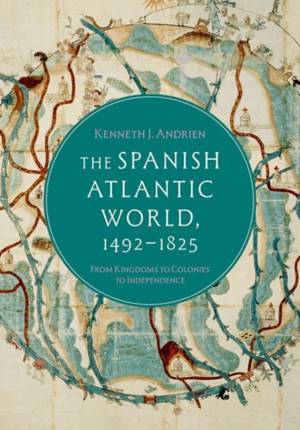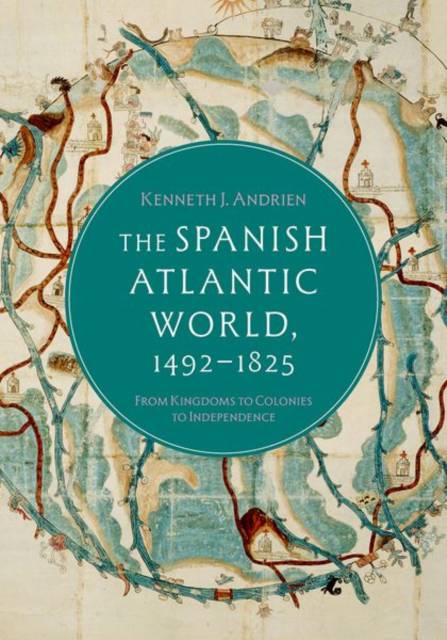
- Retrait gratuit dans votre magasin Club
- 7.000.000 titres dans notre catalogue
- Payer en toute sécurité
- Toujours un magasin près de chez vous
- Retrait gratuit dans votre magasin Club
- 7.000.0000 titres dans notre catalogue
- Payer en toute sécurité
- Toujours un magasin près de chez vous
The Spanish Atlantic World, 1492-1825
From Kingdoms to Colonies to Independence
Kenneth J Andrien
Livre broché | Anglais
48,45 €
+ 96 points
Description
The overseas enterprises of Spain expanded dramatically following the first voyage of Christopher Columbus in 1492. The Spanish had already conquered the Canary Islands, which served as a base for the later conquest of lands in the Americas (known as the Indies) that served as the foundation of the Spanish Atlantic world. After 1492 Spanish colonists fanned out from a few Caribbean outposts to Mexico, as armies overthrew the Aztec Empire and annexed the Maya domains in southern Mexico and Central America. In just over a decade the Spaniards brought down the Inca Empire, giving the Castilians control over the vast human and mineral resources in South America. Over the course of the sixteenth century, the Castilian invaders, followed by crown bureaucrats and Catholic clergymen, consolidated control over the central regions of Mexico and Peru. Spain eventually claimed control over the vast region from the current southwest of the United States to the southern tip of South America, creating a massive domain that brought unimaginable wealth to the Kingdoms of Spain. This wide-ranging study examines the evolution of the Spanish Atlantic World from its inception with the voyages of Christopher Columbus through the period of conquest and expansion in the sixteenth century, the era of consolidation in the seventeenth century, to the reform and renovation of the eighteenth century, culminating in its slow-motion collapse by 1825. Drawing on traditions from the long Reconquest of the Iberian Peninsula from the Muslims, the first conquistadors and settlers attempted to establish a stratified patriarchal society, based on Roman Catholic values and firmly tied to metropolitan Spain and the wider Atlantic world. As Spain became mired in a series of disastrous wars with European rivals and the colonial economy expanded, diversified, and became more self-sufficient in the seventeenth century, colonial elites gained greater political and social power. Under the new French Bourbon dynasty after 1700, crown ministers framed Enlightenment-inspired policies to reform the Spanish Atlantic world, creating a more centralized state apparatus with the ability to raise taxes, curtail contraband commerce, and establish a military capable of defending the interests of the crown against its European foes. These Bourbon Reforms enjoyed successes, despite provoking opposition among conservative groups in Spain and unrest and revolts in the Indies. Finally, Spain became embroiled in the wars of the French Revolution and the rise of Napoleon Bonaparte, which led a French invasion of Iberia, political tumult in Spain and the Indies, and the collapse of the Spanish Atlantic World and independence for the Americas. Drawing on his extensive research and the most recent literature, eminent historian Kenneth J. Andrien lucidly narrates the three hundred years during which the Spanish Indies evolved from kingdoms of the crown to dependent colonies to independent nations, leading to the fracturing of the Spanish Atlantic world.
Spécifications
Parties prenantes
- Auteur(s) :
- Editeur:
Contenu
- Nombre de pages :
- 280
- Langue:
- Anglais
Caractéristiques
- EAN:
- 9780190238834
- Date de parution :
- 28-07-25
- Format:
- Livre broché
- Format numérique:
- Trade paperback (VS)
- Dimensions :
- 161 mm x 232 mm
- Poids :
- 353 g

Les avis
Nous publions uniquement les avis qui respectent les conditions requises. Consultez nos conditions pour les avis.






